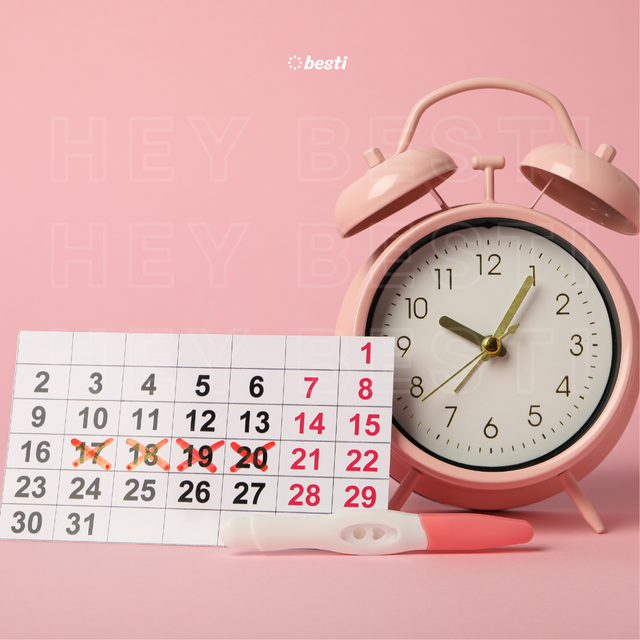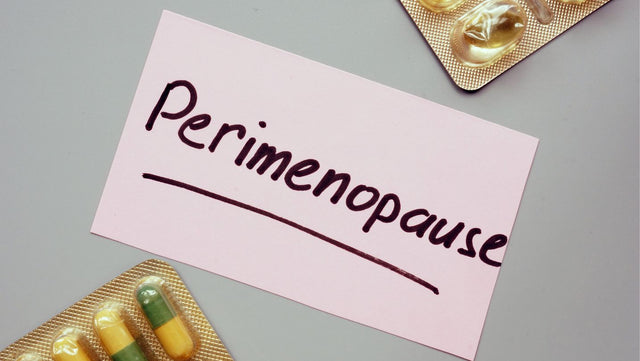Understanding Your First Period: An 8 Part Guide
Your first period, also known as menarche, is a significant milestone in your journey to becoming a young woman. It usually happens between the ages of 9 and 12, though everyone's body is different, and it can happen a little earlier or later.
Starting a period can be a big milestone, and it’s helpful to know a few key things:
1. Understanding Menstruation:
What is it? Menstruation is the monthly shedding of the uterine lining when a fertilized egg is not implanted. When your period starts, it means your body is starting to go through changes that are a natural part of growing up. During your period, you'll notice some bleeding from your vagina, which is your body's way of shedding the lining of your uterus. This might seem a bit strange or even scary at first, but it's a completely normal and healthy part of life.
Cycle Length: A menstrual cycle is the regular natural change that occurs in the female reproductive system to make pregnancy possible. It typically lasts about 28 days, although it can range from 21 to 35 days in adults and from 21 to 45 days in young teens. The cycle starts with the first day of your period, which is when you experience bleeding as the uterus sheds its lining. After your period, the body prepares for ovulation, when an egg is released from one of the ovaries. If the egg isn't fertilized by sperm, the uterus lining is shed again, and the cycle begins anew. This process is controlled by hormones and is a sign that your body is functioning normally and healthily.
2. Symptoms:
Physical: During your period, you might experience physical symptoms like cramping, bloating, breast tenderness, headaches, and fatigue. These are all common. Cramping can occur in your lower belly, which is your body's way of helping to release the uterine lining. These cramps can be mild or sometimes a bit more uncomfortable, but there are ways to feel better, like taking a warm bath or applying a cramp relief balm if needed. You might also notice changes in your mood or feel more tired than usual. It's important to listen to your body and take care of yourself during this time. Make sure to get plenty of rest, eat nutritious foods, and drink lots of water.
Emotional: Emotional symptoms during menstruation, often referred to as PMS (premenstrual syndrome), are common and can vary from person to person. These symptoms are influenced by hormonal changes in your body. You might feel more sensitive, irritable, or moody than usual. Some people experience feelings of sadness, anxiety, or tension, while others might feel more tired or have trouble concentrating. It's also normal to have mood swings, where your emotions can change quickly. These feelings usually start a week or two before your period and can last until it begins. Understanding that these emotional changes are a normal part of your menstrual cycle can help you manage them better. It's important to be kind to yourself, get plenty of rest, and talk to someone you trust if you need support.
3. Managing Periods:
Products: Being prepared for your period can help you feel more confident and comfortable. You might want to carry a small period kit with you, including pads or tampons, a change of underwear, and some wipes. Change pads or tampons every 4-8 hours to maintain hygiene and prevent leakage. There are many different products available, so you can choose the ones that feel best for you. It's also a good idea to talk to a trusted adult, like a parent or a school nurse, if you have any questions or need support. Remember, having your period is a natural part of growing up, and it's something that all women experience. You're not alone, and with time, you'll learn what works best for you to stay comfortable and healthy.
4. Hygiene:
Maintaining good hygiene during your period is important for your health and comfort. Here are some tips to help you stay clean and fresh:
- Wash Your Hands: Always wash your hands with soap and water before and after changing your sanitary products to prevent the spread of bacteria.
- Take Regular Showers: Showering daily helps keep your body clean and reduces any odors that might occur. During your period, it's especially important to gently clean your genital area with warm water. Avoid using harsh soaps or scented products, as they can cause irritation.
- Wear Comfortable, Breathable Clothing: Choose underwear and clothes made from natural fabrics like cotton, which allow your skin to breathe and help you stay comfortable.
- Dispose of Products Properly: Wrap used pads or tampons in their wrappers or toilet paper and throw them in the trash. Never flush sanitary products down the toilet, as they can cause blockages.
Apps and Calendars: Period trackers are tools that help you monitor your menstrual cycle by recording the start and end dates of your periods, along with any symptoms you experience. These trackers can be apps on your phone, online tools, or even a simple calendar. When you get your period, you enter the start date into the tracker. Once your period ends, you enter the end date. Over time, the tracker uses this information to calculate the average length of your cycle and predict when your next period will start. Using a period tracker can help you stay informed about your menstrual cycle, manage symptoms, and take charge of your health.
6. Nutrition and Hydration:
A Healthy Diet: Eating a healthy diet during your period can help alleviate some common symptoms and keep you feeling your best. Focus on incorporating plenty of fruits, vegetables, whole grains, and lean proteins into your meals. These foods provide essential nutrients like iron, which can be lost during menstruation, and magnesium, which may help reduce cramps. Staying hydrated by drinking plenty of water is also crucial, as it can help prevent bloating and fatigue. Additionally, try to limit your intake of salty, sugary, and caffeinated foods and drinks, as they can contribute to bloating and mood swings. Eating balanced meals and snacks throughout the day can help maintain your energy levels and support your overall well-being during your period.
7. Emotional Support:
Emotional support during your period is incredibly valuable because it helps you navigate the physical and emotional changes that can occur. Having someone to talk to, whether it's a family member, friend, or counselor, provides a sense of understanding and reassurance. Sharing your feelings and experiences can lighten the emotional load and help you feel less isolated. Supportive relationships can offer practical advice, empathy, and comfort, making it easier to manage symptoms like mood swings, irritability, or anxiety. Emotional support can also boost your confidence in handling your period, fostering a positive attitude and resilience. Ultimately, knowing you have a support system can make this natural part of life more manageable and less stressful. Remember that menstruation is a normal and natural part of life.
8. When to Seek Help:
Knowing when to seek medical help during your period is important for maintaining your health and well-being. While some discomfort and irregularities are normal, certain symptoms should prompt a visit to your healthcare provider. If you experience extremely heavy bleeding that requires changing your pad or tampon every hour, periods that last longer than seven days, or severe pain that over-the-counter medications cannot relieve, it’s time to seek medical advice. Additionally, if your periods suddenly become very irregular or stop altogether, or if you experience symptoms such as dizziness, fainting, or severe fatigue, these could indicate underlying health issues that need attention. Seeking medical help can ensure that any potential problems are identified and treated early, helping you maintain a healthy and balanced life.
The First Period: A Milestone Worth Celebrating
Celebrating your first period milestone is an important and empowering experience. It's a natural and significant step in your journey to womanhood, marking a time of growth and change. Embracing this milestone with a positive attitude can help you feel proud and confident. You can celebrate by talking to trusted friends and family members, learning more about your body, and treating yourself to something special. Recognizing this moment as a celebration helps foster a healthy and positive relationship with your body and its natural processes. It's a time to honor yourself, feel supported, and acknowledge the beginning of a new chapter in your life.
Who Will Find This First Period Guide Helpful? For Parents And Caregivers...This first period guide is an invaluable resource for anyone supporting a young girl through her first menstrual experience. If you’re a single dad wondering how to talk to your daughter about her first period, this guide provides clear and compassionate advice to help you understand and communicate effectively. Grandmas and grandpas looking to support their granddaughter will find practical tips and comforting words to ease her into this new phase of life. Aunts and uncles who play a crucial role in their niece's upbringing can use this guide to ensure she feels supported and informed. Whether you’re helping a teen navigate her first period or you simply want to be prepared for when the time comes, this resource is designed to empower you with the knowledge and confidence needed to embrace this significant milestone. By addressing the unique needs and concerns of each role, this guide ensures that every caregiver is equipped to provide the best support and understanding during this important time.
Mentioned in this article
More stories


